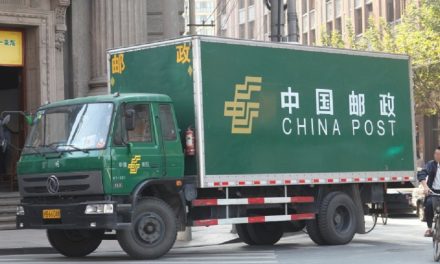
China leaps ahead of India on postal laws
While India has gone slow on the proposed amendment to monopolise handling of documents weighing less than 300 gm, China is all set to revise its postal law to bequeath China Post's express arm EMS (Express Mail Service), the sole authority to handle documents weighing under 150gm.
Exactly like in India, all four international giants – DHL, TNT, FedEx and UPS – and over a dozen domestic operators are a disgruntled lot, since the amendment has the potential to paralyse the industry. Steven Lim, spokesperson of DHL, told ET that it is difficult at present to ascertain the direct impact on their business, based on the unpublished 8th revision of the draft Bill.
"The good news is that the (Chinese) government has considered lowering the weight monopoly to 150 gm, which is lower than the previous draft of 300 gm or more. We believe that it is best to include other standards than just weight, like a price multiple," says Mr Lim.
Most industry officials agree. "Price multiple could be a better standard. The express companies can be restricted to price their services on par with that of the postal department by stipulating a price differential. The price-conscious customer can go to the postal department, while others can patronise private courier/express companies," says an industry official.
Like in India, the express industry in China has also raised concerns over huge job redundancies if the draft proposal is implemented. Others are lamenting that they would have to shut shop. The proposed India Post Office (Amendment) Bill, '06 is currently with the committee of secretaries for reconsideration and incorporation of some changes.
According to Jyotsna Deish, secretary, department of post, the bill is unlikely to come up in its present form. "It has to pass through various levels of reckoning and approvals and will possibly be taken up only in the Budget Session," she had told ET, earlier.
In an email reply, a senior UPS spokesperson said: "UPS hopes that any amendment to the postal law would provide a level playing field and provide a favourable environment for the express delivery industry, which is a part of the logistics industry, in China."
RK Saboo, chairman of Express Industry Council of India (EICI), said most countries have regulated their postal systems with price multiples. "Here, express companies are excluded from the weight restrictions if they levy higher service price.
For instance, many countries have pegged 2.5 times the price of a first class postal mail at the lowest weight slab, and no express companies are allowed to levy their customers any price lower than the standard, which is calculated using the price multiple parameter," he said.
In the US, postal monopoly is limited to deliveries to mail box and post office boxes and to shipments for which the amount paid is equal to or less than $3 or is twice the applicable first class rate, whichever is greater. There is no prohibition on delivery of non-business documents.
In France, Germany, Italy, Norway, Czech Republic and Hungary, the monopoly is restricted for items less than 50 gm and 2.5 times the price of a first class mail at the lowest weight slab. Germany, however, is going to liberalise the industry fully from '08.
Similarly, in Australia, postal monopoly is limited to letters less than 250 gm and express companies excluded if they charge four times the basic price of a standard letter at the lowest weight slab.
In Singapore, minimum charge of a local express letter must not be lower than SD1 per item or thrice the prevailing postage charged by SingPost for an ordinary letter in the first weight-step of 20 gm, whichever is higher.












